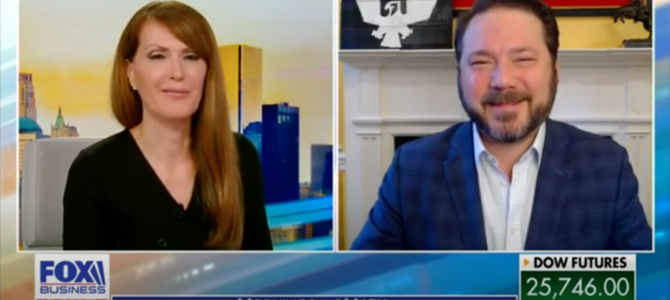Co-Founder of The Federalist Ben Domenech joined Dagen McDowell on Fox Business Monday morning to discuss Google’s attempt to demonetize The Federalist and what it means for the future of censorship.
The controversy began with NBC coordinating with a left-wing British think tank to turn The Federalist as well as another outlet, Zero Hedge, into Google for their content. NBC claimed an issue with an article by The Federalist that criticized the media.
“Google in this case, I think embarrassed by the whole situation came up with the spin that it’s because of our comment section,” Domenech said. “That’s something that actually undercuts all of their arguments about Section 230, which Attorney General Barr addressed with Maria [Bartiromo] this weekend, in a way that I think clearly sets up a situation where that aspect of our law is going to be reformed.”
Big tech companies such as Google are protected under Section 230 of the 1996 Communications Decency Act, which passed just before Google grew as one of the most powerful global sources of information.
In a Sunday morning interview with Fox News’ Maria Bartiromo, Attorney General William Barr said companies built themselves off of this agreement, promising an open platform with a wide variety of views. It gave the companies their strong market position, Barr said, and now they’re censoring some companies while allowing a concentration of large companies who have an inordinate amount of influence on sharing viewpoints.
Domenech said he sees both sides, keeping companies from undercutting competitors in underhanded ways, as well as avoiding becoming tools for “woke leftist mobs.”
“What we’re really seeing here is the power that small groups have to weaponize these large internet entities against people that they don’t like,” he said. “It’s the appeal of radical leftists going after people whose opinions they think don’t just run afoul of their ideas but shouldn’t even see the light of day or have the financial support to continue staying open, and I think we’re going to see more of that.”
Now almost a week since Google took action against the publication, Domenech promised The Federalist’s comments section will return.
“We’re not going to be pushed around by some big tech entity telling us what we can and can’t do,” he said. “Now the comments section is essential.”









